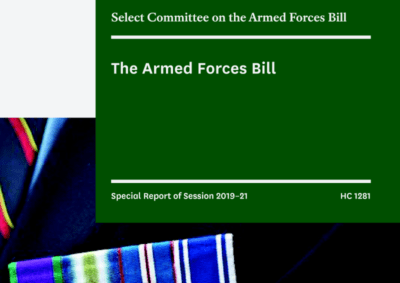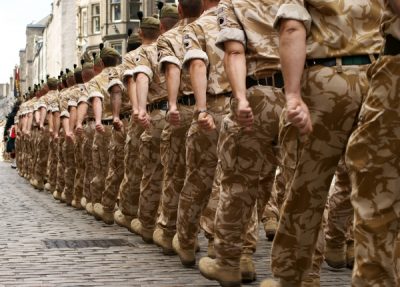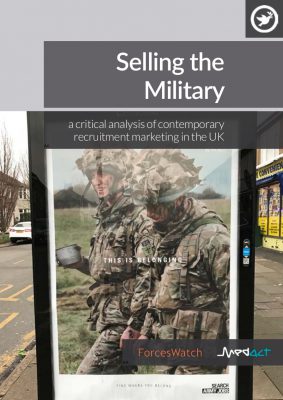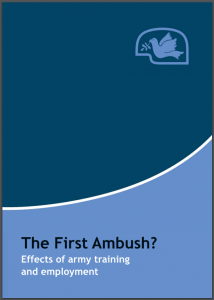terms of service
The Armed Forces Bill: lost opportunities and some dubious proposals

The Armed Forces Bill proposes important changes to the military justice system and will make civil society obligations under the Armed Forces Covenant a legal duty. We look at these and other matters of interest that have come up in the process.
The case for unionising the army

With the military's complaints system being called 'fundamentally dysfunctional' and its justice system 'second rate', we look at calls for expanding the rights of military personnel and allowing self-organisation through unionisation.
Selling the Military films
March 2019

At the launch event for our report with Medact on Selling the Military: A critical analysis of contemporary recruitment marketing in the UK, contributors and participants told us why they think this is an important issue. And a longer film of the presentation summarising the report.
Liberty Soldier’s Rights campaign
The human rights organisation Liberty campaign on Soldier's Rights and have addressed a number of substantial concerns with the military justice system in recent years.
Selling the military: A critical analysis of contemporary recruitment marketing in the UK
February 2019

This report, written by ForcesWatch and published with the public health charity Medact, analyses the way the armed forces market their careers to adolescents and young people, creating powerful messages that which exploit developmental vulnerabilities and social inequality, risking the health and well-being of recruits. Narratives of camaraderie and self-development also serve to promote an uncontroversial and depoliticised idea of the military more widely which promote self-fulfilment in the context of conflict.
New report calls for regulation of military marketing that targets young people
27/02/2019ForcesWatch press release
A report published today (27 February 2019) critiques the armed forces’ marketing practice in selling their careers to vulnerable adolescents. This comes in the wake of the Army's controversial new 'Snowflake' recruiting campaign.
The First Ambush: Effects of army training and employment
June 2017

This report from Veterans For Peace UK details how the Army's training process has a forceful impact on attitudes, health, and behaviour even before recruits are sent to war. The findings show that military training and culture combine with pre-existing issues (such as a childhood history of anti-social behaviour) to increase the risk of violence and alcohol misuse. Traumatic war experiences further exacerbate the problem.
Is it Counterproductive to Enlist Minors into the Army?
December 2016
This article, written by Child Soldiers International and published in the Royal United Service Institute Journal, argues that raising the UK enlistment age from 16 to 18 would bring benefits to young people and the British armed forces. The article explains that the UK’s low enlistment age is counterproductive internationally, as it implies to other countries that it is acceptable to use children under the age of 18 to staff national armed forces.
Army defies child rights campaigners, intensifies intake of 16-year-olds for riskiest roles
24/11/2016Child Soldiers International press release
Child Soldiers International press release
Figures released today reveal that the British Army has increased its intake of 16-year-olds in the past 12 months, defying calls from the UN, children’s rights organisations and others campaigning for an end to the recruitment of minors.
Soldiers at 16: Sifting fact from fiction
March 2016

Published by Child Soldiers International, this short and accessible booklet addresses questions often raised about under-18s in the armed forces, presenting the facts - based on extensive research - rather than the fiction. Also contains very useful quotes and statistics. Great when talking to your MP or for those thinking of enlisting!
